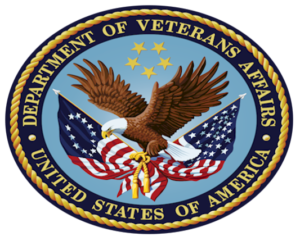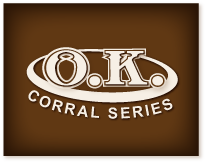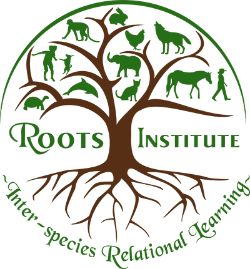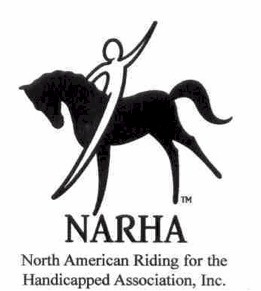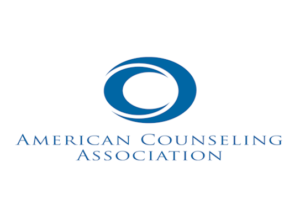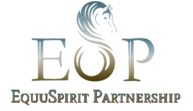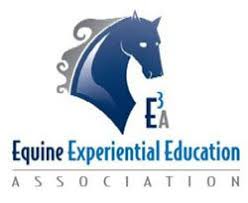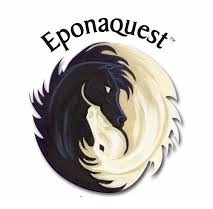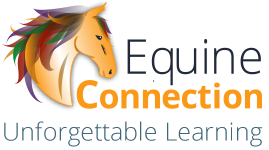Equine Assisted Therapy Insurance
Equine Psychotherapy Insurance
Equine Assisted Learning Insurance
Equine Assisted Therapy Insurance – Equine Therapy Insurance
Equine Assisted Learning – by Allen Financial Insurance Group
Contact us for a no obligation Equine Assisted Therapy Insurance or Equine Therapy Insurance quote today!
Our national Equine Assisted Therapy and Equine Assisted Learning Insurance Programs are custom designed to meet the unique insurance needs of your Equine Assisted Therapy, Equine Assisted Psychotherapy & Equine Assisted Mental Health Program. Written through an A rated insurance company this comprehensive package offers both flexibility and broad protection including professional liability coverage at extremely competitive prices.

One Policy – Two Coverage Options !
We are pleased to announce major new enhancements to our Equine Therapy & Learning Insurance Programs including extended liability options. As the Equine Assisted Therapy Insurance (EAT) industry leader, we have significantly expanded the scope of coverage in our equine therapy policy. In addition to Comprehensive Equine Liability we can now offer complete professional liability coverage for all aspects of your behavioral therapy operations.
Our Behavioral Therapy Liability coverage offers complete blanket protection for all behavioral therapy exposures equine and non-equine. It covers the Named Insured, employees volunteers and scheduled independent contractors. Please call us today for a no obligation Equine Therapy Insurance account review and quote today!
Equine Assisted Therapy & Learning Insurance Highlights
- A+ rated national insurance company
- Liability coverage throughout the United States & Canada
- Installment Payment Plans
- Employees, Volunteers & Premises Owners named additional insured
- Clinics, Shows & Special Events included
- Personal Injury & Advertising Liability Included
- Can be written as a Commercial Equine Package
- Care, Custody & Control coverage for non-owned horses
- Additional equine exposure coverage option
- Accident & Disability Coverage for volunteers
- Credit for professional certification
- Volunteer Accident Medical Insurance
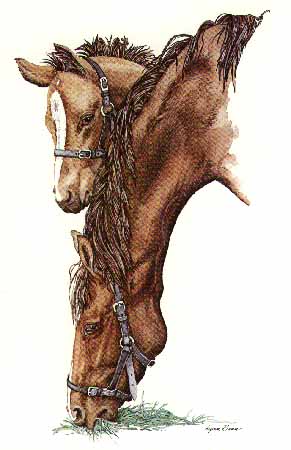
Disability Types & Conditions
- Abuse Issues
- Attention Deficit Disorder
- Amputee
- Autism
- Brain Injuries
- Cardiovascular Accident/Stroke
- Cerebral Palsy
- Chemical Abuse
- Developmental Disabilities
- Down Syndrome
- Eating Disorders
- Emotional Disabilities
- Hearing Impairments
- Learning Disabilities
- Multiple Sclerosis
- Muscular Dystrophy
- Post Polio Speech Impairments
- PTSD
- Spina Bifida
- Spinal Cord Injuries
- Visual Impairments
Equine Assisted Therapy Insurance Information
The benefits of horseback riding are as numerous as the types of disabilities and conditions served. Research shows that students who participate in therapeutic riding can experience physical, emotional and mental rewards. Because horseback riding gently and rhythmically moves the rider’s body in a manner similar to a human gait, riders with physical disabilities often show improvement in flexibility, balance and muscle strength.
For individuals with mental or emotional disabilities, the unique relationship formed with the horse can lead to increased confidence, patience and self-esteem. The sense of independence found on horseback benefits all who ride. The therapeutic qualities of horseback riding are recognized by many medical professionals, including the American Physical Therapy Association and the American Occupational Therapy Association.
Individuals of all ages, with a wide range of physical, cognitive and/or emotional disabilities benefit from therapeutic horseback riding and other equine activities.
It is important that you choose a policy specifically designed for your Equine Assisted Therapy Insurance program. After an intensive research effort we now offer the most comprehensive Equine Assisted Therapy Insurance policy available. 24/7 coverage including extended liability! Please call us today to get a no obligation quote and coverage comparison.
Professional Association of Therapeutic Horsemanship International (PATH Intl.), a federally-registered nonprofit, was formed in 1969 as the North American Riding for the Handicapped Association to promote equine-assisted activities and therapies (EAAT) for individuals with special needs. With nearly 4,500 certified instructors and equine specialists and 850 member centers around the globe, more than 7,500 PATH Intl. members help more than 54,000 children and adults with physical, mental and emotional challenges find strength and independence through the power of the horse each year.
Wounded Warrior Project
The mission of Wounded Warrior Project™ (WWP) is to honor and empower wounded warriors. WWP’s purpose is to raise awareness and enlist the public’s aid for the needs of injured service members, to help injured servicemen and women aid and assist each other, and to provide unique, direct programs and services to meet their needs. WWP is the hand extended to encourage warriors as they adjust to their “new normal” and achieve new triumphs. Offering a variety of programs and services, WWP is equipped to serve injured servicemen and women with every type of injury… from the physical to the invisible wounds of war.
Certified Equine Interaction Professionals (CBEIP)
The mission of the Certification Board for Equine Interaction Professionals is to acknowledge the identity, integrity, and excellence of equine interaction professionals by offering the most comprehensive and independent certification ensuring safety and value for qualified educators, mental health counselors, psychotherapists, and Equine colleagues.
The North American Riding for the Handicapped Association (NARHA) promotes equine facilitated therapy and activity programs in the United States and Canada. Currently, more than 650 NARHA program centers serve some 30,000 individuals with disabilities. Each year, dozens of new centers initiate new programs and thousands of individuals profit from these beneficial activities.
Since 1969, NARHA has ensured that therapeutic riding is both safe for, and accessible to, those in need. In that time the field of therapeutic riding has expanded along with the numbers of individuals profiting from involvement with horses. Today NARHA represents a growing number of equine assisted therapies and activities, including recreational riding for individuals with disabilities, hippotherapy, equine assisted psychotherapy, driving, vaulting, competition and other therapeutic and educational interactions with horses.
EAGALA
Founded in 1999, EAGALA is an international nonprofit association for professionals using equine therapy to address mental health and human development needs. The EAGALA Model provides a standard and structure for providing Equine Assisted Psychotherapy and Equine Assisted Learning sessions. An Equine Specialist, a Mental Health professional, and horses work together with clients in all EAGALA sessions.
Human-Equine Alliances for Learning (HEAL)
This organization supports and studies Equine-Facilitated Psychotherapy (EFP). EFP is an experiential therapy in which horses are employed to facilitate emotional growth and learning for humans. HEAL promotes through public education, supports with scholarship and program subsidies and studies EFP efficacy and supporting science.
Insuring Therapy & Human Service Programs
What Are Equine-Assisted Activities and Therapies? Throughout the world, hundreds of thousands of individuals with and without special needs experience the rewarding benefits of equine-assisted activities and therapies (EAAT). A physical, cognitive or emotional special need does not limit a person from interacting with horses. In fact, such interactions can prove highly rewarding. For instance, experiencing the rhythmic motion of a horse can be very beneficial. Riding a horse moves the rider’s body in a manner similar to a human gait, so riders with physical needs often show improvement in flexibility, balance and muscle strength. Whether it’s a five-year-old with Down syndrome, a 45-year-old recovering from a spinal cord injury, a senior citizen recovering from a stroke or a teenager struggling with depression, research shows that individuals of all ages who participate in EAAT can experience physical and emotional rewards. For individuals with emotional challenges, the unique relationship formed with the horse can lead to increased confidence, patience and self-esteem. For teams in the corporate workplace and any individual seeking better leadership, team building or communication skills, working with horses provides a powerful new paradigm.
The Role of the Equine as Partner in EAAT New scientific research continues to reveal critical information about equine sentience- their abilities of perception, cognition, memory, and emotions such as pain and fear. Equines are able to perceive, respond to and learn from the impressions they receive from minimal sensory stimuli. The stimulus may originate from changes in human biochemistry, body language, or vocal intonations. It can also come from changes in the equine’s environment, relationships with other equines, or the equine’s general health In this way, equines make decisions based upon the stimuli they experience from others or from their environment (Hangg, 2005; Nicol, 2002; Proops, McComb, & Reby, 2009; Saslow, 2002). These abilities are based in natural, biological, physiological, and psychological traits of equines. Each equine is unique in personality, and has individual likes, dislikes and habits. The information gained from equine communication can be highly useful in all EAAT settings. Listening to equine communication can have an effect on the care of the equines, their rate of burnout, and the success of the human-equine interaction. In EAAT sessions or lessons, viewing the equine as a partner invites opportunities for relationship building and skill building with all participants served.
Equine Assisted Activities & Equine Therapy Definitions
Equine-Assisted Activities (EAA)
Equine-assisted activities are any specific center activity, e.g.. therapeutic riding, mounted or ground activities, grooming and stable management, shows, parades, demonstrations, etc., in which the center’s clients, participants, volunteers, instructors and equines are involved.
Equine-Assisted Learning (EAL)
Equine-assisted learning (EAL) is an experiential learning approach that promotes the development of life skills for educational, professional and personal goals through equine-assisted activities. In an EAL setting, the experiential approach integrates equine-human interaction that is guided by a planned learning experience to meet the identified goals or desires of the participant(s). Working with equines provides opportunities to teach critical life skills such as trust, respect, honesty and communication.
Equine-Assisted Therapy (EAT)
Equine-assisted therapy is treatment that incorporates equine activities and/or the equine environment. Rehabilitative goals are related to the patient’s needs and the medical professional’s standards of practice.
Equine-Facilitated Learning (EFL)
Equine Facilitated Learning (EFL) is an educational approach to equine-assisted activities. EFL content is developed and organized by credentialed practitioners with the primary intent to facilitate personal growth and development of life skills through equine interactions.
Equine-Facilitated Psychotherapy (EFP)
EFP is defined as an interactive process in which a licensed mental health professional working with or as an appropriately credentialed equine professional, partners with suitable equine(s) to address psychotherapy goals set forth by the mental health professional and the client.
Hippotherapy
The American Hippotherapy Association, Inc., defines hippotherapy as a physical, occupational or speech therapy treatment strategy that utilizes equine movement. The word hippotherapy derives from the Greek word hippos, meaning horse. The term hippotherapy refers to the use of the movement of the horse as a treatment strategy by physical therapists, occupational therapists and speech/language pathologists to address impairments, functional limitations and disabilities in patients with neuromotor and sensory dysfunction. This treatment strategy is used as part of an integrated treatment program to achieve functional goals.
Interactive Vaulting
Interactive Vaulting is an activity in which the students perform movements on and around the horse. These movements can be very simple such as sitting without holding onto the surcingle or a more elaborate compulsory move such as kneeling or standing on the horse. It all depends on the individual needs of the vaulter. Learn more.
Therapeutic Driving
Carriage Driving offers students with physical, mental, sensory or emotional disabilities the rewards of interaction and control of a horse or pony while driving from a carriage seat or in their own wheelchair in a carriage modified to accommodate their wheelchair. Learn more.
Therapeutic Riding
Therapeutic riding is an equine-assisted activity for the purpose of contributing positively to the cognitive, physical, emotional and social well-being of individuals with special needs. Learn more
Equestrian Therapeutic Associations:
- OK Corral Series – Equine Assisted Psychotherapy
- Equine Assisted Growth and Learning Association
- Equine Connection – Academy of Equine Assisted Learning
- Equine Experiential Education Assn
- Equine (EAT) Explained
- American Hippotherapy Association
- Path International
- Professional Association of Therapeutic Horsemanship International
- SkyHorse Equine Guided Education
- Therapeutic Adventure Professional Group
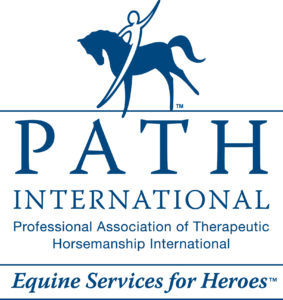
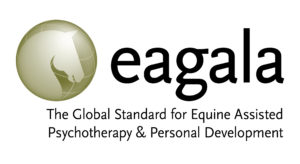
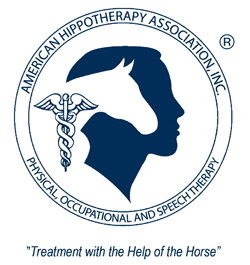 American Hippotherapy Assn
American Hippotherapy Assn
